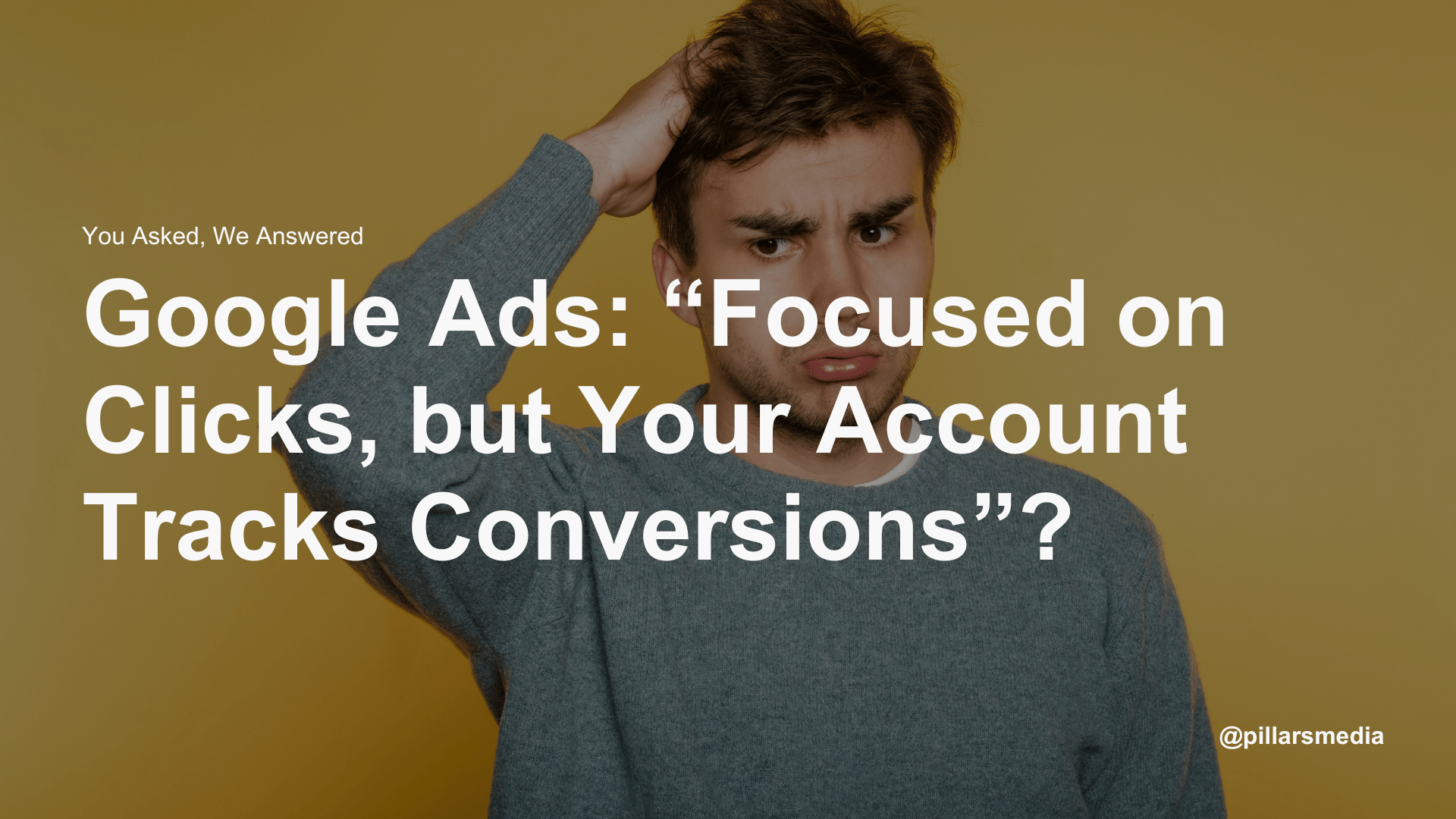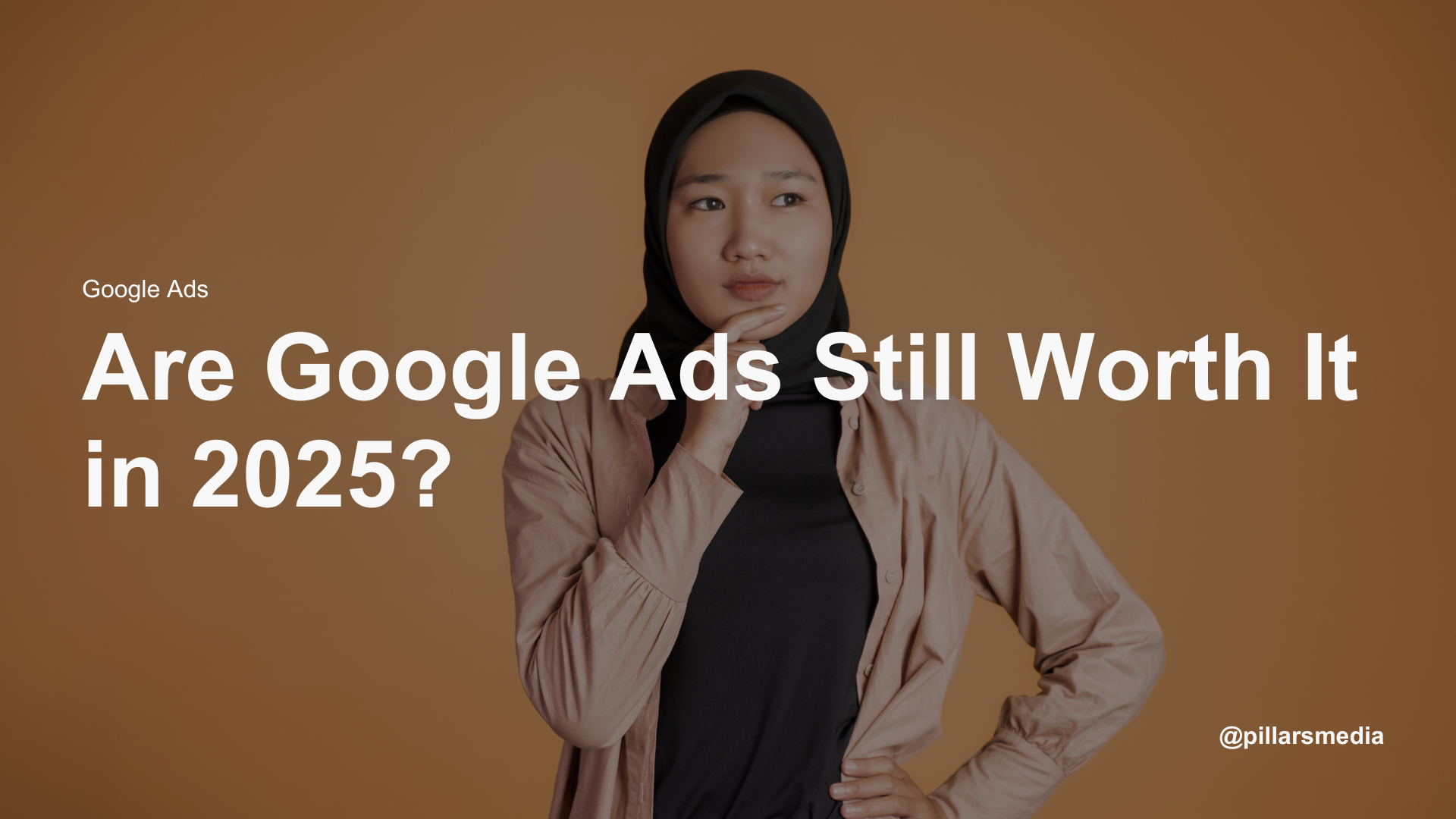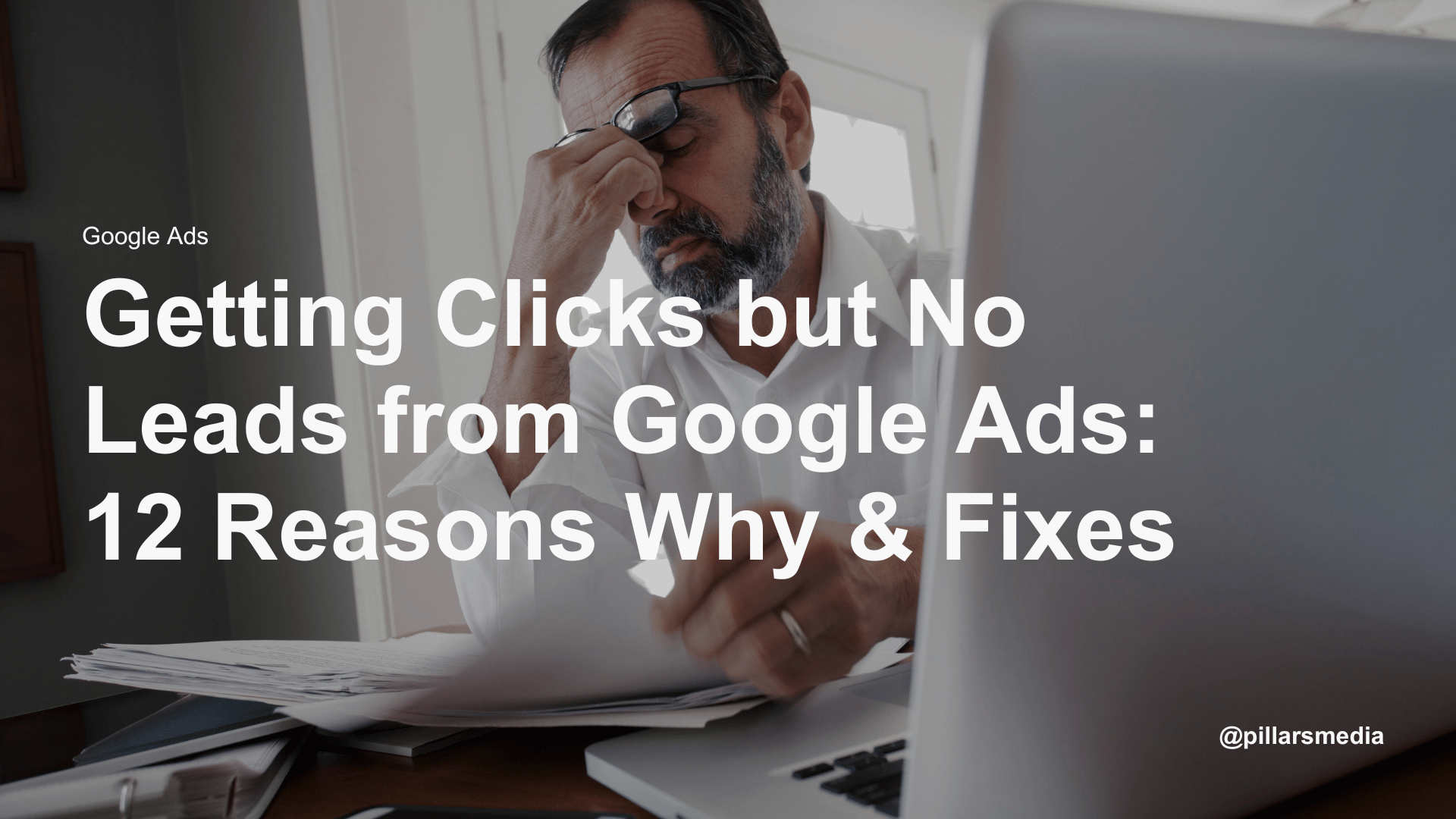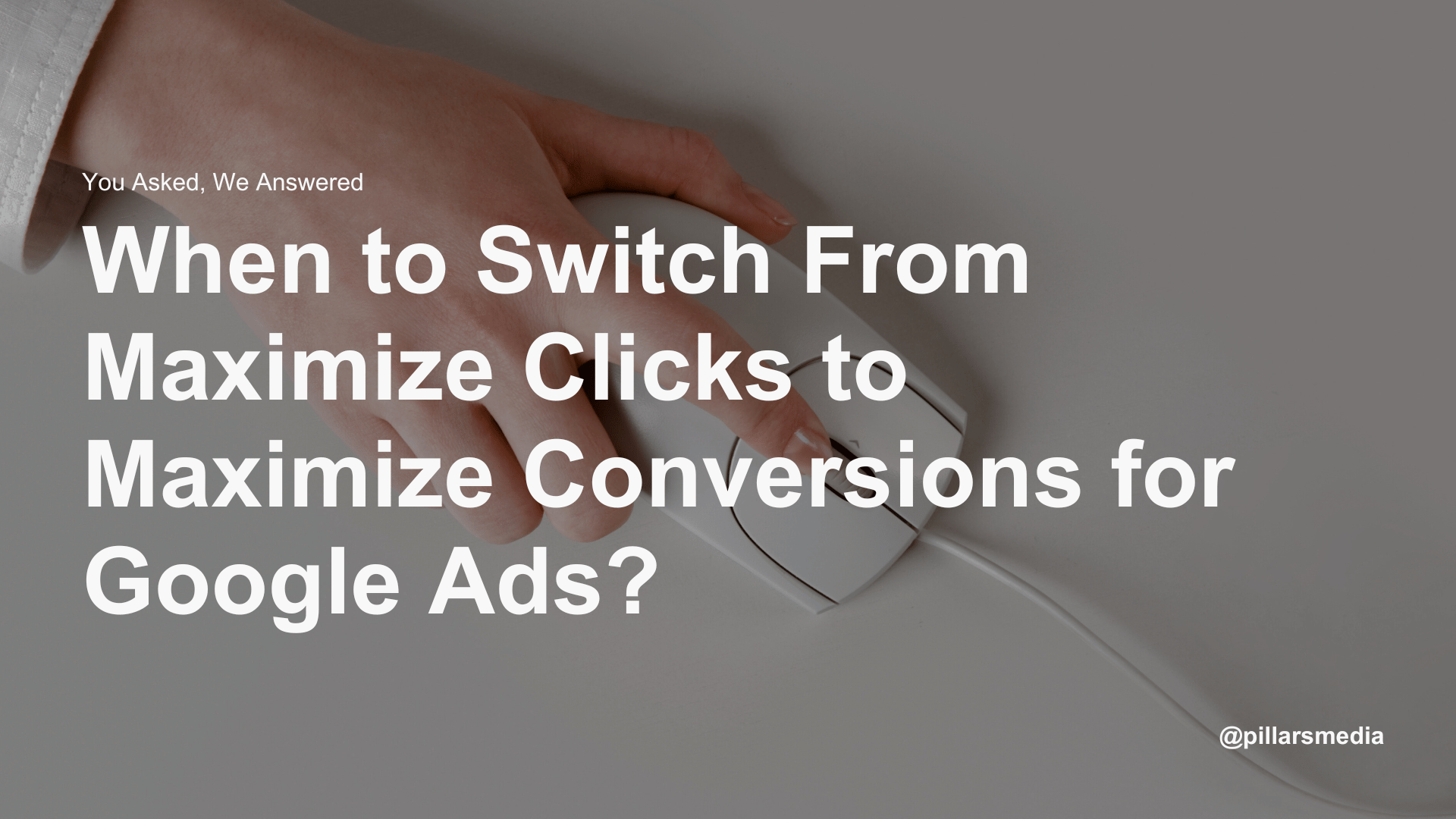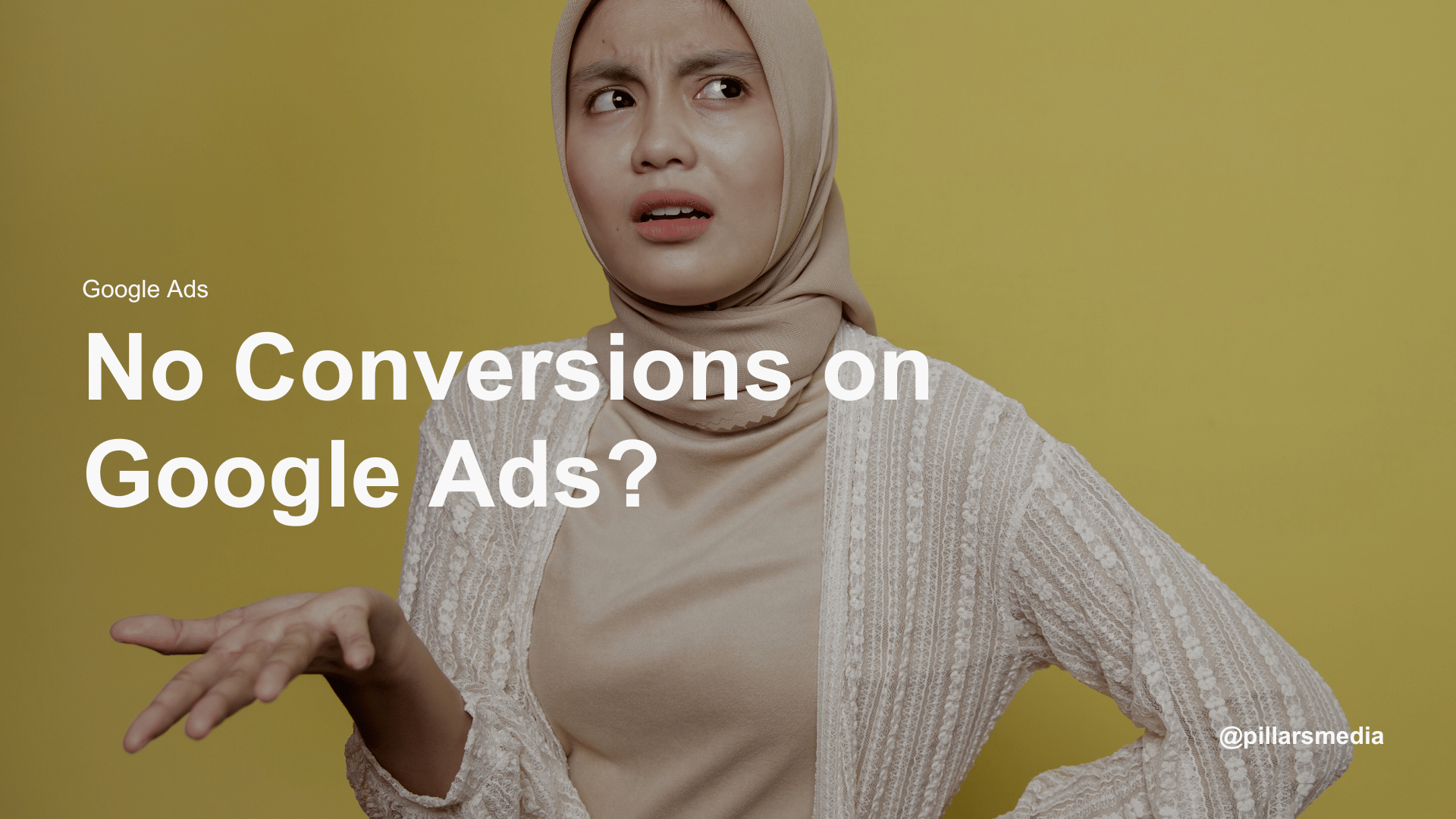You’ve created your new Google Ads account, set up Conversion Tracking, handpicked all the relevant search keywords, and started running your shiny new Google Ads campaign. You’ve opted for the Maximize Clicks bidding strategy instead of Maximize Conversions because you’ve heard that it’s best to first build a base of clicks and conversions before switching strategies.
But then, Google Ads hits you with a warning: “Focused on Clicks, but Your Account Tracks Conversions.”
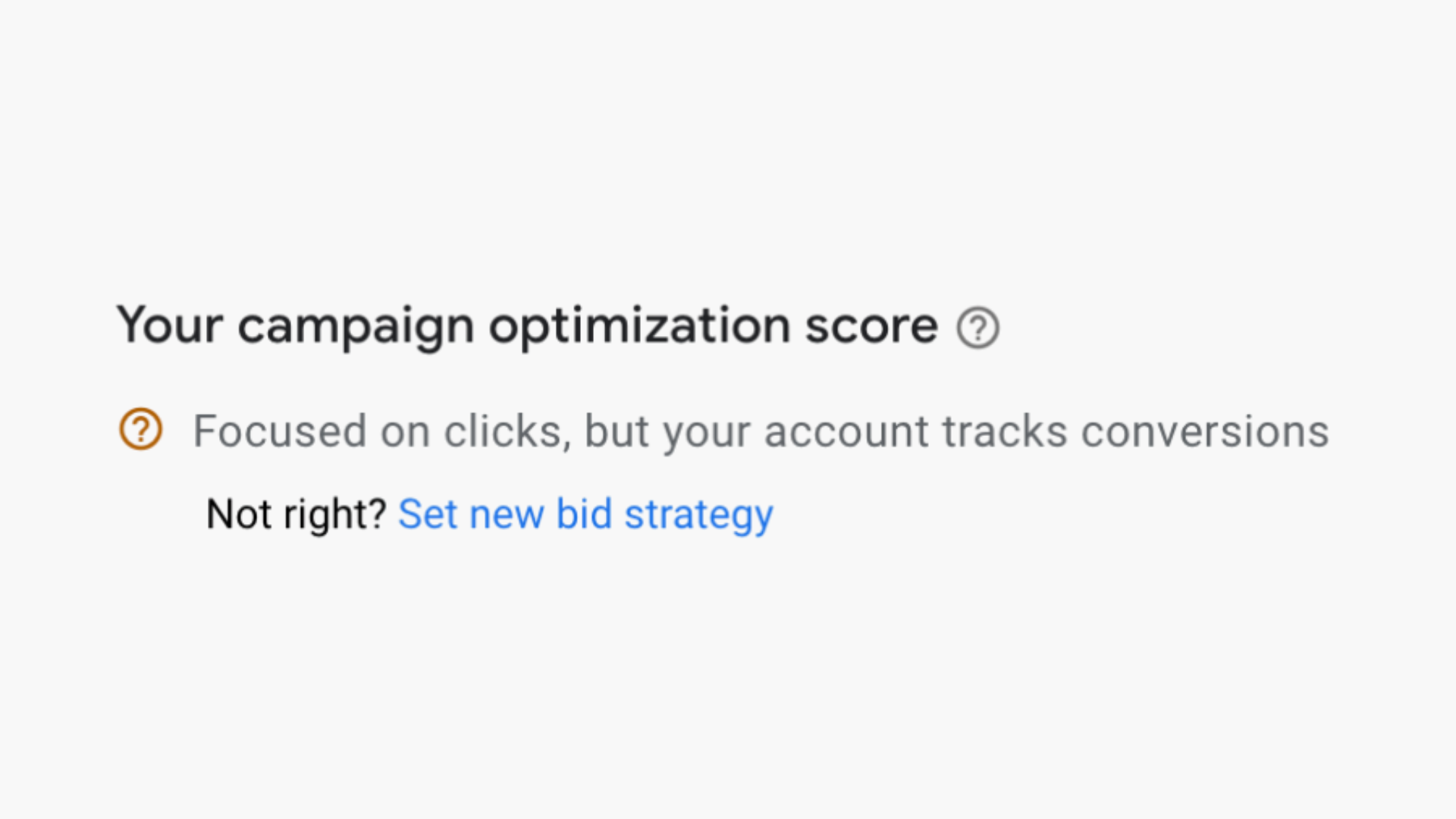
What’s going on here? Should you be worried? Is your campaign doomed?
Let’s dive into what this message means and how it could impact your Google Ads campaign.
What Does "Focused on Clicks, but Your Account Tracks Conversions” Mean in Google Ads?
At its core, this warning from Google Ads is a gentle nudge (or not-so-subtle reminder) that while your account is tracking conversions, your chosen bidding strategy is Maximize Clicks. In simpler terms, Google Ads is saying, “Hey, I see you’re tracking conversions, but you’re optimizing for clicks. Maybe you want to focus on conversions instead?”
So, why the nudge? Google Ads recognizes that if your goal is to drive conversions (which could be anything from a purchase to a newsletter sign-up), optimizing for clicks might not get you there efficiently. Clicks are great, but conversions are better if you’re looking to grow your business.
Google Ads is essentially recommending that you switch from a Maximize Clicks bidding strategy to a Maximize Conversions bidding strategy.
But should you follow this advice immediately? Not necessarily.
Should You Follow Google Ads' Recommendations?
Let’s be real: Google Ads’ recommendations, while useful, aren’t always a perfect match for your specific campaign needs.
Here's Why You Might Want to Think About It Before Switching to Maximize Conversions:
-
Data accumulation: If you’re just starting a campaign, it’s important to build up enough data first. By focusing on clicks in the beginning, you give your campaign a chance to gather valuable insights into user behavior, traffic patterns, and keyword performance. Without sufficient data, switching too soon to a conversion-focused strategy may lead to underperformance.
-
Budget considerations: Maximize Conversions typically requires more budget flexibility. When Google optimizes for conversions, it can bid higher on individual clicks if it believes there’s a high likelihood of conversion. If your budget is tight, this could cause costs to spiral quickly.
- Your campaign goals: Not all campaigns are purely conversion-focused. Maybe you’re running an awareness campaign where you simply want as many eyeballs (clicks) as possible before honing in on conversions.
So, should you follow Google’s recommendation? Not blindly.
Evaluate Your Campaign Performance First
Before making any changes to your bidding strategy, take a moment to assess the situation:
-
How much data do you have? – If your campaign is brand new and has very few clicks or conversions, it might be too early to switch to Maximize Conversions.
-
What’s your primary objective? – Is the goal of your campaign to drive as many conversions as possible, or are you aiming for broader reach and awareness?
-
Do you have the budget for conversion-focused bidding? – Maximize Conversions can quickly increase your cost per click (CPC), so make sure you’re ready for that potential spike.
Once you’ve done your analysis, you can make a more informed decision on whether to stick with clicks or pivot toward conversions.
How to Handle Google's Recommendations
If you’ve taken a close look at your campaign and feel confident in your current strategy, you can simply ignore Google’s warning. Just because Google Ads suggests something doesn’t mean it’s the best option for your campaign right now.
That said, it’s always good to keep the suggestion in the back of your mind for when your campaign matures or when your objectives shift.
Conclusion
To wrap things up, when Google Ads shows you the warning, “Focused on Clicks, but Your Account Tracks Conversions,” it’s their way of suggesting that if your ultimate goal is conversions, you may want to shift your bidding strategy to align with that.
But as we’ve discussed, switching too early can be risky. First, accumulate enough data, consider your campaign’s goals, and evaluate your budget before making any moves.
If you’re unsure about the best strategy for your campaign, our Google Ads service can help you figure it out.
Google Ads Agency Malaysia - Pillars Media
Pillars Media is a well-trusted Google Ads agency in Malaysia with a solid track record of helping businesses turn ad spend into real leads and sales through our tailored Google Ads services in Malaysia. We get it. Many businesses waste money on Google Ads without seeing real results. Poor clicks, low-quality leads, and not knowing how the system works can be frustrating. That’s where we come in. As a certified Google Ads agency, we take care of everything from setup and strategy to ongoing optimization. But we don’t just drive traffic, we bring in the right kind of traffic. Our focus is always on getting you quality leads, not just clicks. Over the years, we’ve helped companies from a wide range of industries grow through effective Google Ads strategies. If you’re looking for Google Ads services in Malaysia that actually work, it’s time to work with a team that understands your business and knows how to get results.
